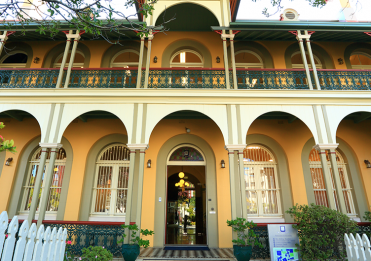‘Tell me now, Muses, who dwell on Olympus—for you are goddesses, you are there, you know everything, while we hear only repute and know nothing.’
Amidst descriptions of battles, heroes, and gods, we find, in both the Iliad and the Odyssey, ruminations on the role of the poet. Homer sat, creating a literary masterpiece from common recited tales, and thought about his role in the creation of stories and meaning.
He added something from within, and wondered what it meant.
But he couldn’t describe it beyond what I recited before, returning to the well-worn framework of ‘a deity did it!’ Other writers agreed; the poet, they thought, is a vessel for the voice of the gods, their words a mortal interpretation of prophesy.
In hearing evidence of imagination, the ancients decided that it transcended humanity. Invisible, intangible, but mighty; they saw something akin to the gods.
Thought, is an act of creation. And who can create, but the divine?
The question of thought and creativity is one that has captivated humanity for millennia. Throughout our history, we have been thinking about thinking, trying to understand ideas and our ability to create them.
Because despite the beliefs of ancient literary critics, imagination is so incredibly, inherently human.
Some philosophers, Plato among them, claim that ideas are their own ontological category of being. They actually exist in themselves, sometimes even more than physical objects. Whether this is truly the way that existence is organised is irrelevant—regardless, famous philosophers placed ideas and conceptual existence as the most real thing in the universe, attesting to their power.
If the nonsensical musings of old men from centuries past aren’t all that convincing to you (which, fair, philosophy is NOT for everyone), turn instead to modern science. Augustín Fuentes, an accomplished anthropologist, insists that ‘without art, we’re not human’. His research shows that the ability to imagine and think creatively is not only incredibly distinct to humans, but also the driving force behind our evolution.
Yet, there seems to be a perception that an idea isn’t real, or meaningfully impactful. The truth is that today we live in a world where we are less encouraged to think than ever. Whether its social media, instant messages or bingeable TV—nobody is comfortable with letting their thoughts roam freely anymore.
Art, writing, videos—it’s all ‘content’, mass produced for mass consumption, and completely divorced from any notion of an artist or creative mind.
The arts and humanities are particularly under attack—from funding cuts, increased admission fees, and the general disparaging of these fields in our society.
There’s an obsession with quantifiable usefulness—it’s much easier to understand the benefit cancer research provides to society, than it is to get the value of studying 16th century poetry. This mindset misses the point, though. Thinking deeply and critically, finding beauty and meaning—it enriches humanity, culturally and intellectually, and that is where its value lies.
Ideas are powerful, and we cannot lose sight of that.
There would have been a moment, in all of your lives, where you fully realised that every single person is thinking, and feeling, and living an entire life from a first-person perspective, just the same as you. That the abstract fact of ‘8 billion people’ means 8 billion minds, 8 billion lives just as vivid and as complex as your own, existing simultaneously.
You can try to think of that, try to keep it in your mind, but the truth is that our collective creative power is so far beyond individual understanding that it slips away.
The creative capacity of just one human mind is infinite and unknowable. What about two minds? What about 8 billion?
This is the power we wield.
There is so much wrong with the world—you’ll probably hear a lot about it today—and I know that all of us here want change. But there’s so much good, too. In the world, and in ourselves. It’s worth saving.
Our ideas are how.
To dream is to be human. Regardless of your grades, and all the meaningless ways we quantify intelligence, your mind is valuable. The act of thinking will save us. Generate ideas, and we generate the future.
By Liv Evans (10O)




